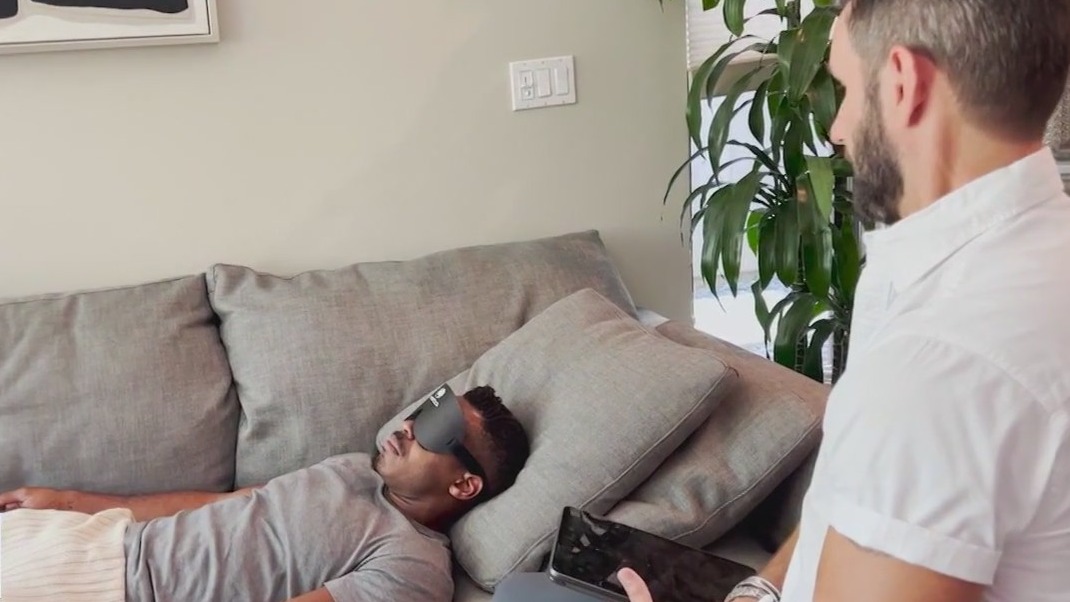Efforts continue to get TREAT California initiative on ballot

Psychedelic-assisted therapy
There's a new initiative to bring psychedelic-assisted therapy to California, but it's going to require one million voter signatures to get it on the ballot.
LOS ANGELES - There's a new initiative to bring psychedelic-assisted therapy to California, but it's going to require one million voter signatures to get it on the ballot.
Researchers say the clinical trials show astounding results.
"I served 31 years of my life… part of my job as a SEAL, I was in Iraq and Afghanistan multiple times," said veteran advocate and former Navy SEAL Guy McDermott. "I definitely had traumatic events that took place… I normalized it, I buried it, to keep going forward in life."
McDermott left the military and joined Glendale Fire as a firefighter paramedic, thinking he could evade his trauma.
He couldn't.
"I was on a critical call…. child same age as my son… for the first time in my life I froze. I had so much shame, I wasn't able to react and it almost killed me," he said. "I went into a spiral of panic attacks, got to a point where I wanted to end my own life."
McDermott says therapy paired with psychedelics saved him.
"I was seeing a lot of my friends do these psychedelics with a new sense of life. I could see it, I could feel it," he said.
"I went down to experience myself and my life couldn't be better than it is now. I live a life of joy and peace. The power of this is not only what I went through, but the therapy that went along with it."
That's why he believes a new initiative to research psychedelic-assisted therapy would be groundbreaking for those who suffer like he did.
TREAT California is a citizen-driven ballot initiative that will create a $5 billion research funding agency. It will provide treatments and research on psychedelic medicines.
The initiative would also train therapists, creating 200,000 new therapists and making it accessible to all Californians.
Dr. Jeannie Fontana, who is renowned for her work in advancing stem cell research to fight diseases like ALS, is spearheading TREAT California.
"We have this mental health crisis in our state… the homeless population has grown, opioid crisis has hit… we're talking about treating treatment-resistant PTSD patients who on average have suffered for two decades, treating them with psychedelic therapy, which is a combo of talk therapy with medicine," she said.
While the National Institute of Health says traditional antidepressants only work for 30% of patients long-term, the clinical trials for psychedelic therapy are showing astounding results.
After three administrations taking MDMA in therapy, 80% of them had significant decrease in symptoms and a year later, no longer qualified for PTSD.
Psychedelic therapist and researcher Dr. Nick Bruss says similar results were seen with a study out of Johns Hopkins for psilocybin, the active ingredient in magic mushrooms.
"One year later, 60% of those participants no longer qualified for depression," he said.
"I've seen people get their lives back."
"Psychedelics create an environment in the brain that help us approach rather than avoid the information that needs to be processed."
Critics say more research is needed, which is what this initiative aims to do, and doctors warn people with certain conditions like schizophrenia or bipolar disorder should steer clear.
But for other mental health challenges, a growing list of health experts including former ER doctor Sarah Abedi are getting behind TREAT California.
"As an ER doctor, what I would see frequently were chronic mental health conditions. It sometimes felt like a revolving door," Dr. Abedi said. "I felt as a doctor, I was putting on a lot of band-aids but not helping people get to the root cause of illnesses."
"I've been doing clinical trials for three years. We meet regularly in a therapy setting to integrate and process material that's come up. The research is nothing but jaw-dropping," she added.
"Why would we not want to offer access to these powerful medicines when showing such promise?"
She hopes California voters will agree.
TREAT California advocates have six months to collect one million voter signatures to get this on the ballot.
Once it's on the ballot, it's up to Californians to vote.
To learn more, visit TREATCalifornia.org.

